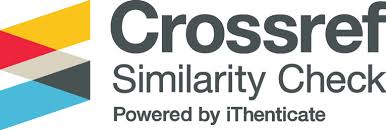PENGARUH FINANCIAL DISTRESS, ASIMETRI INFORMASI, UKURAN PERUSAHAAN DAN LEVERAGE TERHADAP KONSERVATISME AKUNTANSI PADA PERUSAHAAN MANUFAKTUR DI BURSA EFEK INDONESIA (BEI) PERIODE TAHUN 2014 - 2018
Abstract
Accounting conservatism is a basic characteristic of accounting in which the recognition of earnings applies the principles of prudence and vigilance due to the uncertainty of the economic environment. In this study, it is tested how the effect of financial distress, accounting asymmetry, company size and leverage in the application of the accounting conservatism method in the presentation of financial statements. This research was conducted at manufacturing companies listed on the Indonesia Stock Exchange (BEI) for the period 2014-2018. The sample was determined using purposive sampling method, with a total sample of 51 companies. This research uses classical assumption test and multiple linear regression to test the research hypothesis. The result of financial distress variable regression test is -0.040 with the value of Sig. 0.001 indicates that financial distress has a negative effect on accounting conservatism, so that a non-conservative accounting method will be applied in presenting the financial statements of companies experiencing high levels of financial distress. The regression value of information asymmetry is 0.418 with a Sig. 0.042 indicates that information asymmetry has a positive effect on accounting conservatism. This indicates that the increasing information asymmetry that occurs will result in a conservative presentation of financial statements. While the results of the regression test of company size with a regression coefficient of 0.091 and a value of Sig. 000 indicate that company size has a positive effect on accounting conservatism, which results in the larger the company size, the more likely it is to use conservative methods. The leverage regression coefficient is - 0.578 with the Sig. 0.000 indicates that leverage has a negative effect on accounting conservatism, which causes the company to choose a non-conservative accounting method in presenting financial statements if the company experiences a high level of leverage.







